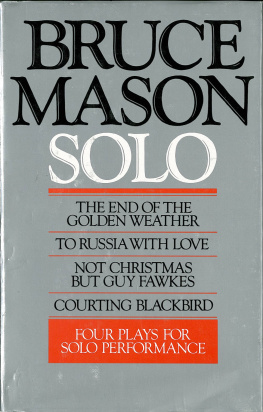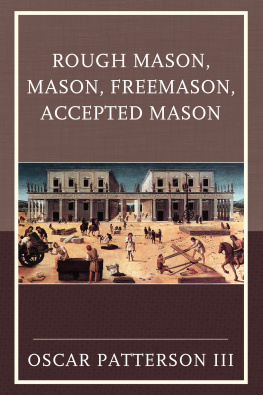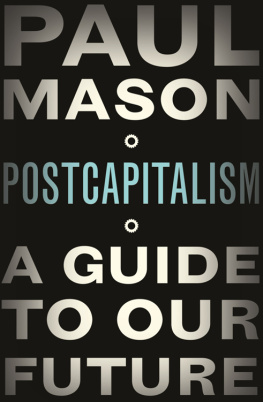A Mason - At the Villa Rose
Here you can read online A Mason - At the Villa Rose full text of the book (entire story) in english for free. Download pdf and epub, get meaning, cover and reviews about this ebook. year: 1910, genre: Detective and thriller. Description of the work, (preface) as well as reviews are available. Best literature library LitArk.com created for fans of good reading and offers a wide selection of genres:
Romance novel
Science fiction
Adventure
Detective
Science
History
Home and family
Prose
Art
Politics
Computer
Non-fiction
Religion
Business
Children
Humor
Choose a favorite category and find really read worthwhile books. Enjoy immersion in the world of imagination, feel the emotions of the characters or learn something new for yourself, make an fascinating discovery.

- Book:At the Villa Rose
- Author:
- Genre:
- Year:1910
- Rating:5 / 5
- Favourites:Add to favourites
- Your mark:
- 100
- 1
- 2
- 3
- 4
- 5
At the Villa Rose: summary, description and annotation
We offer to read an annotation, description, summary or preface (depends on what the author of the book "At the Villa Rose" wrote himself). If you haven't found the necessary information about the book — write in the comments, we will try to find it.
At the Villa Rose — read online for free the complete book (whole text) full work
Below is the text of the book, divided by pages. System saving the place of the last page read, allows you to conveniently read the book "At the Villa Rose" online for free, without having to search again every time where you left off. Put a bookmark, and you can go to the page where you finished reading at any time.
Font size:
Interval:
Bookmark:
At the Villa Rose
A. E. W. Mason
CHAPTER I
It was Mr. Ricardos habit as soon as the second week of August came round to travel to Aix-les-Bains, in Savoy, where for five or six weeks he lived pleasantly. He pretended to take the waters in the morning, he went for a ride in his motor-car in the afternoon, he dined at the Cercle in the evening, and spent an hour or two afterwards in the baccarat-rooms at the Villa des Fleurs. An enviable, smooth life without a doubt, and it is certain that his acquaintances envied him. At the same time, however, they laughed at him and, alas with some justice; for he was an exaggerated person. He was to be construed in the comparative. Everything in his life was a trifle overdone, from the fastidious arrangement of his neckties to the feminine nicety of his little dinner-parties. In age Mr. Ricardo was approaching the fifties; in condition he was a widower-a state greatly to his liking, for he avoided at once the irksomeness of marriage and the reproaches justly levelled at the bachelor; finally, he was rich, having amassed a fortune in Mincing Lane, which he had invested in profitable securities.
Ten years of ease, however, had not altogether obliterated in him the business look. Though he lounged from January to December, he lounged with the air of a financier taking a holiday; and when he visited, as he frequently did, the studio of a painter, a stranger would have hesitated to decide whether he had been drawn thither by a love of art or by the possibility of an investment. His "acquaintances" have been mentioned, and the word is suitable. For while he mingled in many circles, he stood aloof from all. He affected the company of artists, by whom he was regarded as one ambitious to become a connoisseur; and amongst the younger business men, who had never dealt with him, he earned the disrespect reserved for the dilettante. If he had a grief, it was that he had discovered no great man who in return for practical favours would engrave his memory in brass. He was a Maecenas without a Horace, an Earl of Southampton without a Shakespeare. In a word, Aix-les-Bains in the season was the very place for him; and never for a moment did it occur to him that he was here to be dipped in agitations, and hurried from excitement to excitement. The beauty of the little town, the crowd of well-dressed and agreeable people, the rose-coloured life of the place, all made their appeal to him. But it was the Villa des Fleurs which brought him to Aix. Not that he played for anything more than an occasional louis; nor, on the other hand, was he merely a cold looker-on. He had a bank-note or two in his pocket on most evenings at the service of the victims of the tables. But the pleasure to his curious and dilettante mind lay in the spectacle of the battle which was waged night after night between raw nature and good manners. It was extraordinary to him how constantly manners prevailed. There were, however, exceptions.
For instance. On the first evening of this particular visit he found the rooms hot, and sauntered out into the little semicircular garden at the back. He sat there for half an hour under a flawless sky of stars watching the people come and go in the light of the electric lamps, and appreciating the gowns and jewels of the women with the eye of a connoisseur; and then into this starlit quiet there came suddenly a flash of vivid life. A girl in a soft, clinging frock of white satin darted swiftly from the rooms and flung herself nervously upon a bench. She could not, to Ricardos thinking, be more than twenty years of age. She was certainly quite young. The supple slenderness of her figure proved it, and he had moreover caught a glimpse, as she rushed out, of a fresh and very pretty face; but he had lost sight of it now. For the girl wore a big black satin hat with a broad brim, from which a couple of white ostrich feathers curved over at the back, and in the shadow of that hat her face was masked. All that he could see was a pair of long diamond eardrops, which sparkled and trembled as she moved her head-and that she did constantly. Now she stared moodily at the ground; now she flung herself back; then she twisted nervously to the right, and then a moment afterwards to the left; and then again she stared in front of her, swinging a satin slipper backwards and forwards against the pavement with the petulance of a child. All her movements were spasmodic; she was on the verge of hysteria. Ricardo was expecting her to burst into tears, when she sprang up and as swiftly as she had come she hurried back into the rooms. "Summer lightning," thought Mr. Ricardo.
Near to him a woman sneered, and a man said, pityingly: "She was pretty, that little one. It is regrettable that she has lost."
A few minutes afterwards Ricardo finished his cigar and strolled back into the rooms, making his way to the big table just on the right hand of the entrance, where the play as a rule runs high. It was clearly running high tonight. For so deep a crowd thronged about the table that Ricardo could only by standing on tiptoe see the faces of the players. Of the banker he could not catch a glimpse. But though the crowd remained, its units were constantly changing, and it was not long before Ricardo found himself standing in the front rank of the spectators, just behind the players seated in the chairs. The oval green table was spread out beneath him littered with bank-notes. Ricardo turned his eyes to the left, and saw seated at the middle of the table the man who was holding the bank. Ricardo recognised him with a start of surprise. He was a young Englishman, Harry Wethermill, who, after a brilliant career at Oxford and at Munich, had so turned his scientific genius to account that he had made a fortune for himself at the age of twenty-eight.
He sat at the table with the indifferent look of the habitual player upon his cleanly chiselled face. But it was plain that his good fortune stayed at his elbow tonight, for opposite to him the croupier was arranging with extraordinary deftness piles of bank-notes in the order of their value. The bank was winning heavily. Even as Ricardo looked Wethermill turned up "a natural," and the croupier swept in the stakes from either side.
"Faites vos jeux, messieurs. Le jeu est fait?" the croupier cried, all in a breath, and repeated the words. Wethermill waited with his hand upon the wooden frame in which the cards were stacked. He glanced round the table while the stakes were being laid upon the cloth, and suddenly his face flashed from languor into interest. Almost opposite to him a small, white-gloved hand holding a five-louis note was thrust forward between the shoulders of two men seated at the table. Wethermill leaned forward and shook his head with a smile. With a gesture he refused the stake. But he was too late. The fingers of the hand had opened, the note fluttered down on to the cloth, the money was staked.
At once he leaned back in his chair.
"Il y a une suite," he said quietly. He relinquished the bank rather than play against that five-louis note. The stakes were taken up by their owners.
The croupier began to count Wethermills winnings, and Ricardo, curious to know whose small, delicately gloved hand it was which had brought the game to so abrupt a termination, leaned forward. He recognised the young girl in the white satin dress and the big black hat whose nerves had got the better of her a few minutes since in the garden. He saw her now clearly, and thought her of an entrancing loveliness. She was moderately tall, fair of skin, with a fresh colouring upon her cheeks which she owed to nothing but her youth. Her hair was of a light brown with a sheen upon it, her forehead broad, her eyes dark and wonderfully clear. But there was something more than her beauty to attract him. He had a strong belief that somewhere, some while ago, he had already seen her. And this belief grew and haunted him. He was still vaguely puzzling his brains to fix the place when the croupier finished his reckoning.
Font size:
Interval:
Bookmark:
Similar books «At the Villa Rose»
Look at similar books to At the Villa Rose. We have selected literature similar in name and meaning in the hope of providing readers with more options to find new, interesting, not yet read works.
Discussion, reviews of the book At the Villa Rose and just readers' own opinions. Leave your comments, write what you think about the work, its meaning or the main characters. Specify what exactly you liked and what you didn't like, and why you think so.









